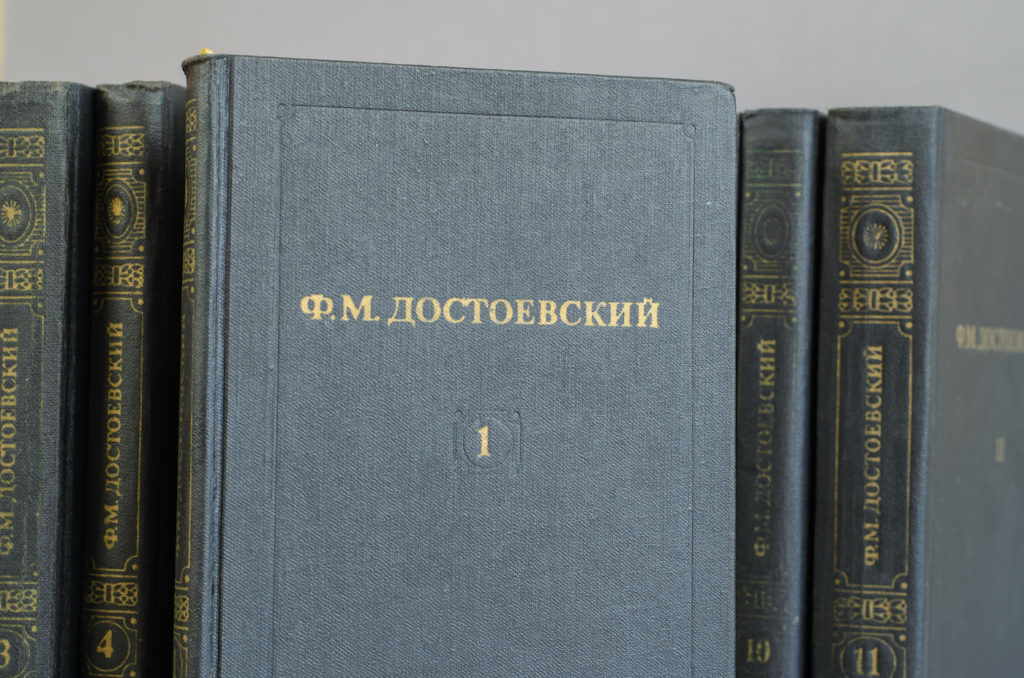My friend Joshua Katz, a peerless linguist and distinguished classicist, recently gave a lecture for The New Criterion, which was published in the magazine’s November 2022 issue as “The beginnings: first words, first lines, first stories.” It was the kind of thing only a great scholar can do, and make it look easy (it isn’t): start with the most mundane and simple of observations, and draw the listener or reader into unsuspected depths of insight, in this case into the workings of language and storytelling.
I won’t try to summarize here what he says; by all means read it for yourself. Instead I want to confess how sadly monolingual Joshua reminded me I am. In a podcast with Jonah Goldberg in August, he estimated that he can read “dozens” of languages—his estimate being a little inexact because the distinction between “language” and “dialect” is sometimes contested. Yes, he’s a linguist, so it’s his stock in trade. But for my part, I am abashed to say, I am fluent in just one language, and you’re reading it.
At various times when I was young, I studied German, Latin, and French—and by laborious reconstruction of a by then already decayed vocabulary, I “qualified” in German as my foreign language for my doctoral degree. I have no doubt that my studies back then continue to help me with English etymology, and I can puzzle out some simple phrases and sentences in the three languages I studied. But the adage “use it or lose it” is never more true than in the case of languages, and desuetude has left me incapable of serious reading, let alone writing, in any of them.
I thus find myself in a position that is probably true of a great many readers: I depend on translations for my access to a great deal of world literature and international scholarship, but I am no fit judge of the accuracy of the translations among which I might have to choose. How then to choose?
Start your day with Public Discourse
Sign up and get our daily essays sent straight to your inbox.Since I was first assigned Plato’s Republic as a college sophomore, and in all my years teaching that text since I began to do so in the 1980s, I have used Allan Bloom’s translation (even the same copy I bought in 1978, thanks to a good binding). The first sentence of his preface is, “This is intended to be a literal translation.” Bloom explains that his aim is for the student of Plato to be “emancipated from the tyranny of the translator.” A good translator, he avers, does not smooth out the bumps in the road the author takes, or bring the work “up to date.” Much less does he assume that he fully understands the book and is responsible for making a difficult work “palatable.” He is instead responsible for bringing the author’s thoughts before the reader in the most direct and unmediated way possible, allowing us to grapple with its strangeness.
I depend on translations for my access to a great deal of world literature and international scholarship, but I am no fit judge of the accuracy of the translations among which I might have to choose. How then to choose?
Harvey Mansfield, similarly, begins “A Note on the Translation” of his edition of Machiavelli’s Prince by saying, “In this translation I have sought to be as literal and exact as is consistent with readable English.” So, to take a notable instance, Mansfield consistently translates virtù directly as “virtue,” preserving the jarring experience of seeing Machiavelli call shocking behavior virtuous. Like Bloom, Mansfield wants the newcomer to the text to have a kind of raw encounter with something strange and wonderful (as in “to be wondered at”).
Is it then literalness that is the true criterion of a good translation? Bloom seems to say yes; Mansfield qualifies it with “consistent with readable English.” The latter is more defensible, and probably gathers in Bloom’s own practice, whatever he says about his aims. But readable English changes from age to age. Does every great work in another language, then, need to be translated afresh every few generations?
I’m not sure that follows. I like what Ronald Knox says in his 1949 book On Englishing the Bible. Knox had singlehandedly translated into English the whole of the sixteenth-century Clementine Vulgate, the Catholic Church’s authoritative revision of St. Jerome’s fourth-century Latin translation of the Hebrew and Greek scriptures. In reflecting on his work, Knox says the “two alternatives” are “the literal and the literary method of translation,” and he leans strongly toward the latter. But this does not mean that every generation or two there must be a fresh translation for “contemporary” literary tastes. He writes:
In a word, what you want is neither sixteenth-century English nor twentieth-century English, but timeless English. Whether you can get it, is another question. The method I proposed to myself was this—to use no word, no phrase, and as far as possible no turn of sentence, which would not have passed as decent literary English in the seventeenth century, and would not pass as decent literary English to-day.
A few lines later, Knox ruefully says, “Strictly speaking, the thing is not possible.” But it is something to strive for nonetheless. If such a goal were achieved, it ought to be good for another century or two as well.
But a good case can be made that for readers of English translations to get a sense of a story’s power, small departures from literalness, and perhaps even large ones, will be necessary on the translator’s part.
It may be that for study, the literalness to which Bloom and Mansfield aspire in their translations of Plato and Machiavelli is the thing needful. Their editions are meant for teachers and students, after all, and the students who undertake advanced work on these philosophers as graduate students ought to learn Greek and Italian for themselves in order to have an unmediated access to the works.
But a good case can be made that for readers of English translations to get a sense of a story’s power, small departures from literalness, and perhaps even large ones, will be necessary on the translator’s part. A dozen years ago Gary Saul Morson, a scholar of Russian literature at Northwestern University, published a blistering critique in Commentary of the work of the husband-and-wife translators Richard Pevear and Larissa Volokhonsky, and the essence of his criticism was that their often wooden literalness failed to do justice to the genre, tone, and intention of authors such as Tolstoy and Dostoevsky, flattening their works and depriving readers of both their depths and their heights. I have compared a few passages of their Anna Karenina with the same passages in the venerable Constance Garnett translation, and in a more recent one by Marian Schwartz (for which Morson wrote the introduction), and I think Morson’s judgment was sound. There seems to be a poverty of expression in the “P&V” translation.
I had a similar experience when I slogged my way through a recent translation of Dumas’s The Count of Monte Cristo, a book I have loved since my early teen years. I have an old copy, published by Little, Brown in the 1890s, whose translator was anonymous, and its romantic Victorian accents seem to suit the atmosphere of Dumas’s classic tale of betrayal, revenge, and redemption. But the 1996 translation by Robin Buss was a job of work to get through. Here’s a quick comparison, from the first chapter when we meet the idealistic young sailing master Edmond Dantès. On his arrival in Marseille, his ship’s owner remarks that a young girl has asked three times whether the ship has come in, saying of the girl, Mercédès (in the Buss translation):
“Dash it, Edmond! You’re a lucky fellow, to have such a pretty mistress.”
“She is not my mistress, Monsieur,” the young sailor said gravely. “She is my fiancée.”
“It sometimes amounts to the same thing,” the owner said, with a chuckle.
“Not for us, Monsieur,” Dantès replied.
And here is my anonymous Victorian translator:
“Peste! Edmond, you have a very handsome mistress.”
“She is not my mistress,” replied the young sailor, gravely; “she is my betrothed.”
“Sometimes one and the same,” said Morrel, with a smile.
“Not with us, Monsieur,” replied Dantès.
The newer translation is more literal in some respects—pretty mistress, fiancée, not for us. (It’s interesting that the older translation simply keeps the idiomatic French exclamation Peste! for which Dash it! is a poor substitute.) But one and the same is much better than amounts to the same thing. And Edmond’s old-fashioned propriety comes through more strongly in the older translation when he speaks of Mercédès as his betrothed, and when he curtly asserts his own—and more importantly, the young woman’s—virtue, saying, in the older translation, not with us. The newer version’s not for us (true to the French “pas pour nous”) could mean that for Edmond and Mercédès the chastity they observe is a matter of their private opinion or “preference”; the simple change of the preposition to “with” in English tells us that for these young lovers the norm is one that is sown into their very being, emblematic of their faithfulness to one another and to something beyond themselves.
Of course the translator’s path is an arduous one, and a monoglot like me is not entitled to criticize too harshly. I still shake my head in wonder at Richard Wilbur’s translation of Molière’s Tartuffe, a play in which I appeared as a college freshman. Molière had written the play in metrically exact rhymed couplets, and Wilbur, an accomplished poet in his own right, had painstakingly reproduced those features in English without losing any of the play’s sense—or its many jokes. I just don’t know how he did it.
But if monoglot readers make poor critics of translations and must feel their way along or rely on the advice of others, monoglot authors can still have a good deal of fun complaining of being ill-used. I have never read anything funnier than Mark Twain’s “retranslation” of his story “The Jumping Frog of Calaveras County.” A French translation of this early story of Twain’s had appeared in the 1870s, and when it came to the author’s attention that the French didn’t get the humor of the story, he “clawed [it] back into a civilized language,” i.e., English, in the most ridiculously literal look-up-each-word-in-the-dictionary way, with sentences like this: “Smiley had custom to say that all which lacked to a frog it was the education, but with education she could do nearly all—and I him believe.”
My own skills as a translator are about as good as Twain’s—you me believe!—so I am always ready to lean on polyglot friends like Joshua Katz for their advice on literature in translation.














